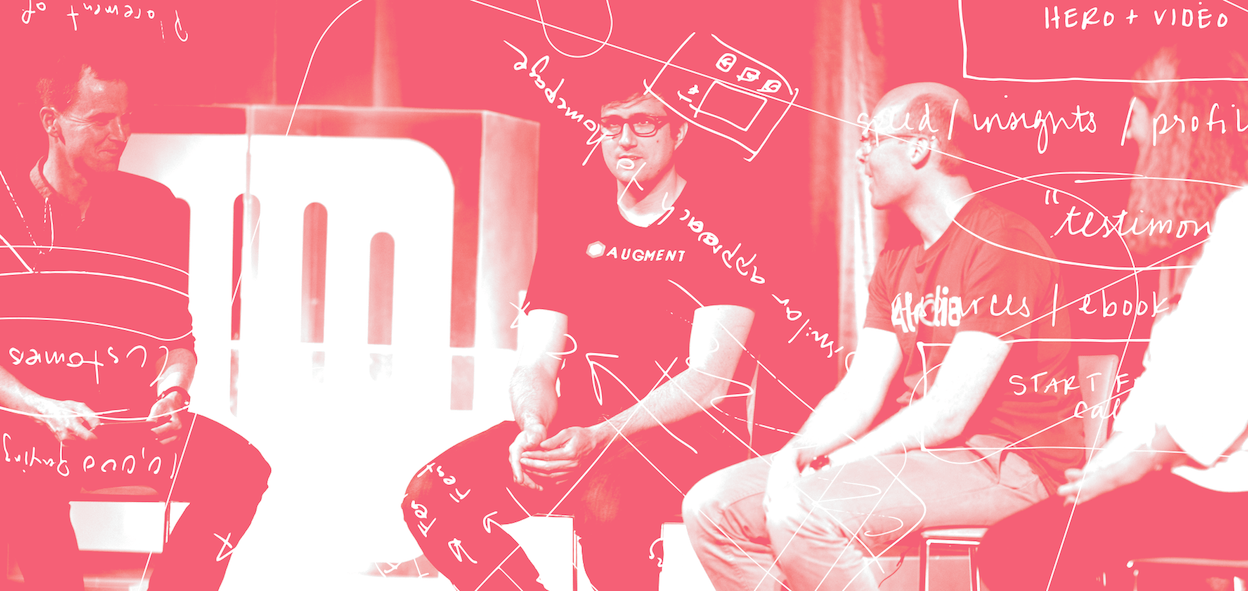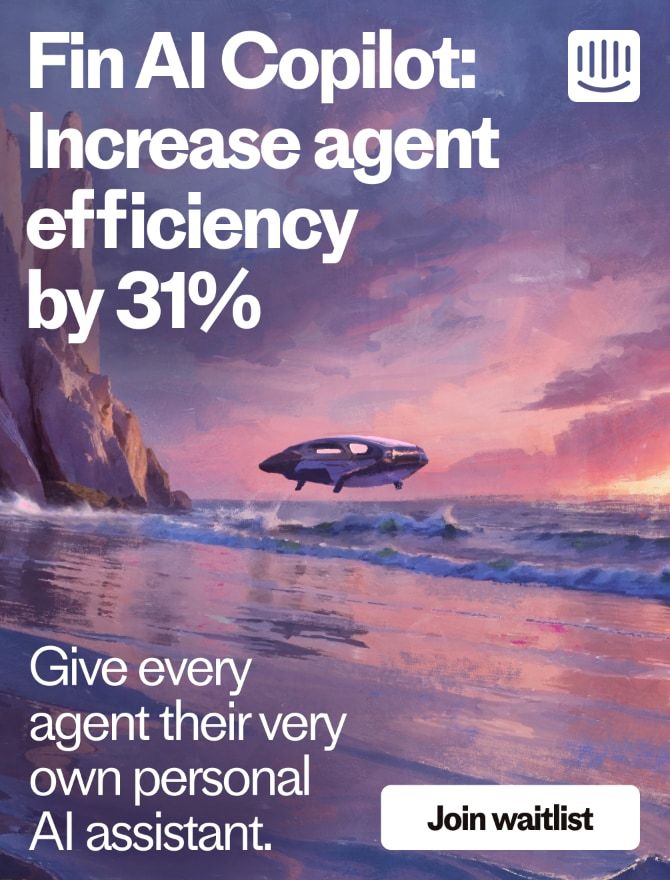
Inside Intercom Paris startup panel
Looking back on the first days of your product, what do you wish you'd known?
At the recent Paris stop of our Inside Intercom World Tour, I brought founders from a few of our favorite local startups to the Maison des Métallos stage and asked them to share their lessons learned. Our panelists include:
- Jean-François Chianetta, co-founder and CEO at Augment, an Augmented Reality platform on iOs and Android to help visualize a product before buying it.
- Julien Lemoine, co-founder and CTO at Algolia, a hosted search API that promises instant and relevant results from the minute you start typing.
- Isabelle George, co-founder of Weroom, a European marketplace for flat shares and room rentals.
Check out our full list of upcoming tour dates and purchase tickets here. To hear more podcast episodes, subscribe on iTunes, Stitcher, or SoundCloud, or grab the RSS feed.
Prefer a written account of the panel? You’ll find a few of our favorite insights below the embed.
First Lessons Learned
Jean-François Chianetta: Ask the people who are using the product what it is for, what they are doing with it, and what they would want to do with it. I developed (Augment) for two years before asking someone what they were doing with the product, just because I liked developing. Obviously, this would have been a better start.
Julien Lemoine: Think about how the product will scale. When you start to have some growth, when you start to have some traction, it’s not (the time). It needs to be done before to be able to scale when you have a lot people who have signed up and want to test the product.
Isabelle George: My first company was a consulting firm. I started this company alone, and I found it very difficult. The product, the client, the customer, the team, it was difficult to run a company. You need a co-founder and the right co-founder with you to create and run your own company. If not, you are alone in decision making and you have nobody to discuss the problems or to share success.
Engaging directly with your customers
Jean-François: We tried (self-serve sales) for three years. It didn’t work out. While we had new customers all the time, there was big churn. People didn’t know exactly how to work or implement augmented reality. The fact is augmented reality is so new that customers didn’t even know what they were buying.
After a while we forbid anyone to buy directly by themselves and we put up a sales form, which I hated, but by doing that we increased our revenue by ten times in one month. Just because we were able to talk to the customer and know what they wanted, and able to tell to the ones that didn’t know about it what it is, and how they can implement it, to onboard them. At some point we will be able to re-install the self-subscription model, because we know what type of customer can buy by themselves, and we will be able to direct them on this way.
Julien: We started directly by doing self-serve but we were also speaking with all the people who try the product, just to try to get as much information as possible – why they’re interested in the basic product, what are the pain points, what can we implement to solve the problems. We managed to contact probably 80% of users. It gives us a lot of insight on the useful part of the product and on the part that we need to improve.
Isabelle: When you rent a room for flat sharing it’s for 6-9 months, so users only come on Weroom once or twice a year. We created a big community on Facebook. We have more than 270,000 fans on Facebook and people are very engaged. We are very active and use it for a lot of content. We stay in touch with our community there.
Known Quantities vs First Movers
Julien: Google has educated the market for us. People are used to having a very good search (experience) every single day when they use Google. The problem is when they use a website or an application, they don’t have the same experience. So Google helps us make people realize their search on their website or application is not good enough. As a company, Google is not really a competitor for us. On the website market they sell advertisements; they are not selling a search engine tool. So we are not directly in competition, but they directly help us. They educate people.
Jean-François: When I started with augmented reality in 2011, nearly all the people I demoed to, it was the first time they saw augmented reality. They always find it cool, but you need to show them value and not just the cool factor.
We basically educated people for free, because we were eager to talk to anyone. Now the market has matured and some of the people that we see today, they’re like oh, okay, that really solves a problem. So being the first mover is good in certain points, but the fact is, nobody is searching on Google (to learn) about an augmented reality solution.
Succeeding in and out of Silicon Valley
Julien: For a company like us that has an international market, we cannot be only in France. Having only one location is not really an option if we want to have a good support for users. We asked ourselves a question about which locations we need to select probably around 100 times, with 100 different answers at the beginning. If we were targeting media industry, we would be in New York because a big concentration of users is there. We are targeting, API’s, startups, so our ecosystem is in San Francisco.
When we went to the US, the big difference was the maturity of the market. For SaaS products, the U.S. is definitely one or two steps in advance in understanding the value and making the decision quickly to move forward.
Isabelle: We are a C2C company, so you have regulation all over the world, and regulation in the US is not the same as regulation in Europe.
Regulation is more or less the same inside Europe, you have common regulations, so we decided to launch cities there first. Most of our demand comes from Europe, but 20% of our demand comes from elsewhere. A lot of Chinese people want to study in Europe, but also American, Canadian, Indian. We also have people all over the world.
What makes a great product?
Isabelle: For me it’s when people come back because you exceed their expectations.
Julien: It’s more experience with the product. All the small details count. It’s all the experience as a user.
Jean-François: A good product is when you say, “Wow, cool,” when you start to use it. A great product is when you bring everyone in the building to show them the product you have discovered.








